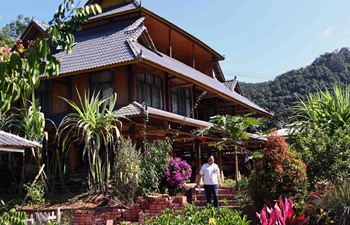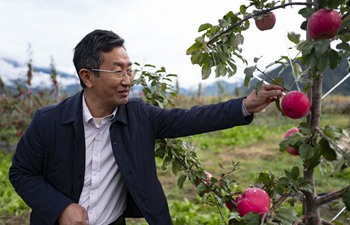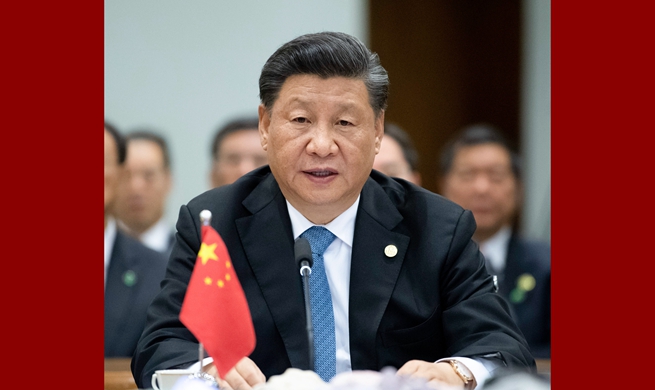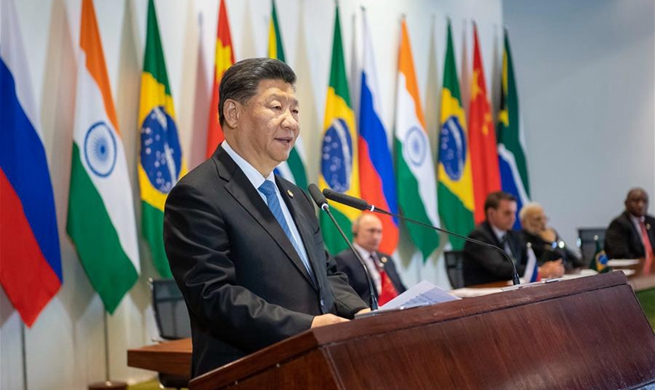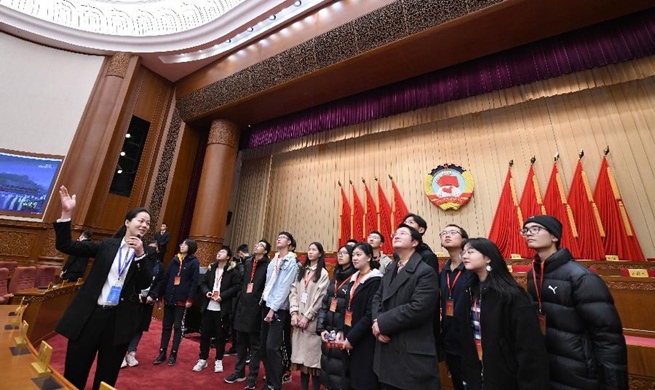by Zhang Jianhua, Wang Shan
VIENTIANE, Nov. 17 (Xinhua) -- Some two hours' drive on bumpy roads to the north from Laos' capital Vientiane lies the village Ban Xor of Sangthong district, settled among the hills.
Among the 407 households, or 2,007 residents in the village, half live in poverty with annual per capita net income less than 700 U.S. dollars.
However, a set of newly-built roads, houses and solar power street lights make a sharp contrast with its old and poor infrastructure, indicating the village's recent effort to combat poverty.
Under a pilot project to reduce poverty in East Asia, the Chinese team selected Ban Xor village to apply China's experience in shaking off poverty since September 2017.
Luo Fengkuan, a Chinese staff of the China-Laos joint poverty alleviation project management office, has witnessed many changes in the village.
"Look at that bridge. Passing through it is quiet and we have started construction of a new bridge," Luo pointed to a rickety wooden bridge over a river that divides the village. The new bridge will be completed in May next year, Luo said.
The old wooden bridge that links the west and east of Ban Xor village is no longer accessible for cars and trucks, and the villagers are eagerly anticipating the new bridge, built with Chinese aid.
Thongvieng Panmany, a 57-year-old local woman, has also witnessed the changes taken place since Chinese teams came to her village in 2017.
Under the Chinese project, asphalt roads have been built, she said. "When the new bridge is finished, it will be more convenient for everyone to farm across the river."
"I have also registered in the village administrative office to learn corn plantation and cattle farming with Chinese technicians. The village's poverty relief is in need of the help from China," she said.
The economic and trade cooperation between the two countries also contributed to poverty reduction here.
Luo told Xinhua that some Chinese investors have set up pig farms near Ban Xor, and promised to buy all the corn planted by the villagers.
The project team is also helping local women find Chinese buyers for their traditional weaving handcrafts, while a Chinese company is also coming for field study to prepare for fruit trees plantation on the hills, said Luo.
In addition to infrastructure construction, Luo said the joint project also include helping the village in public service facilities, industrial development, capacity-building and technical assistance, especially education.
The school compound in Ban Xor includes a kindergarten, a primary school and a secondary school, with about 60 teachers and 550 students.
Forty-four-year-old school headmaster Sin Phommivong showed the reporters several thatched cottages next to the school, which were former dormitories built by teachers and students' parents themselves.
Under the poverty alleviation project, two rows of brick houses with water and electricity supply have been built, greatly improving the living conditions.
Sin is particularly satisfied with the newly-built playground. "Now there will be sports activities every afternoon. This playground is very good for playing basketball and the sepak takraw."
"For us, insufficient education means more poverty. Education should be at the forefront," said Sin, adding that "China has a high level of education and a high level of science and technology. So it is developing very fast. It's the same for our country."
"We should borrow the good experiences from China," said the headmaster.
